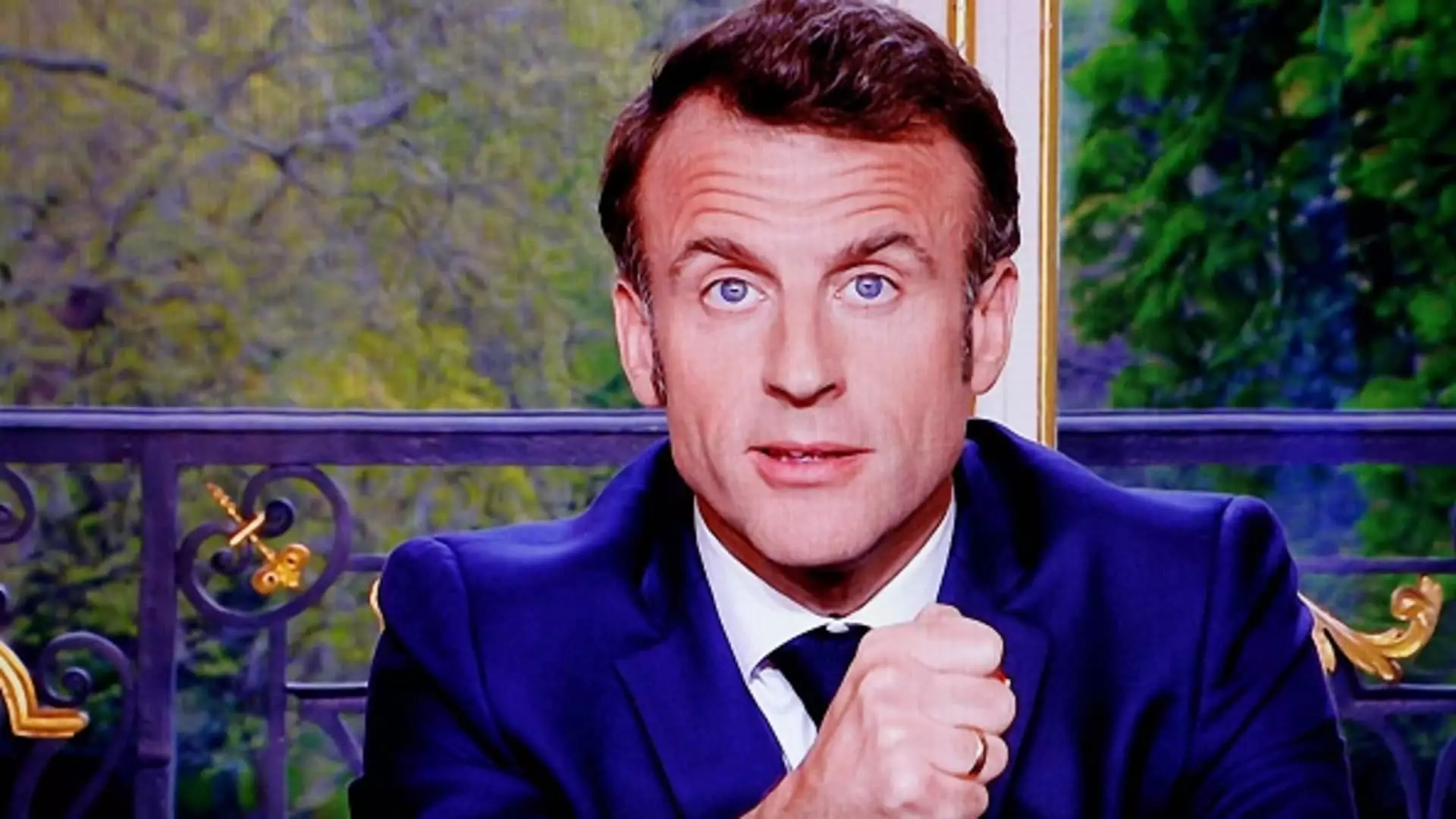French President Emmanuel Macron has stirred controversy with his recent statements regarding the potential deployment of troops into Ukraine. Despite facing backlash from Russia and his NATO allies, Macron has maintained that all options are on the table when it comes to addressing the escalating conflict in Ukraine. Macron argues that the international community needs to set clear red lines and not be constrained by limits in their response to the war in Ukraine. This bold stance puts Macron at odds with many of his European counterparts, including Germany, who are staunchly opposed to the idea of sending troops into Ukrainian territory. Macron’s insistence on considering all options underscores the gravity of the situation and the need for decisive action to ensure the security of Europe and the French people.
Unsurprisingly, Macron’s comments have not been well-received by the Kremlin, with spokesperson Dmitry Peskov suggesting that France’s involvement in the conflict could escalate further. NATO allies have also distanced themselves from Macron’s position, emphasizing the need for political will to support Ukraine without resorting to direct military intervention. While NATO members have committed to increasing defense spending to meet their agreed target of 2% of national GDP, there is reluctance to escalate the conflict further by deploying troops into Ukrainian territory. Instead, NATO contributions have focused on providing ammunition, military equipment, and maintenance to support Ukraine’s defense capabilities. The prospect of direct military engagement with Russia remains a sensitive issue within the alliance, with concerns about the potential consequences of such a move.
Macron’s upcoming meeting with German Chancellor Olaf Scholz in Berlin holds significant implications for addressing tensions over Ukraine. The Weimar Triangle meeting, involving Macron, Scholz, and Polish Prime Minister Donald Tusk, represents a rare opportunity for regional cooperation on the conflict. Germany, in particular, has faced criticism for delays in providing military support to Ukraine, with calls mounting for the delivery of essential military equipment, such as Taurus missiles. Scholz’s insistence that German soldiers may need to be involved in operating these missiles underscores the complexities of the situation and the challenges of balancing military assistance with the risk of direct confrontation with Russia. Tusk’s vocal support for Ukraine aligns with broader calls for increased solidarity and tangible support for Ukraine’s defense capabilities.
The conflict in Ukraine has become a focal point for international diplomacy and military cooperation, with competing interests and strategic calculations shaping responses to the crisis. Macron’s willingness to consider the deployment of troops reflects a sense of urgency and determination to address the escalating violence in Ukraine. However, the risks of direct military engagement and the potential for further escalation underscore the delicate balance that European leaders must navigate in supporting Ukraine while avoiding direct conflict with Russia. The upcoming discussions between Macron, Scholz, and Tusk will be closely watched for signs of unity and cooperation in addressing the crisis in Ukraine. True solidarity with Ukraine, as Tusk emphasizes, will require concrete actions, such as increased military assistance and support for Ukraine’s self-defense efforts.
Macron’s bold stance on the potential deployment of troops into Ukraine highlights the high stakes involved in the ongoing conflict. The diplomatic and military challenges facing European leaders underscore the complexities of responding to the crisis while balancing competing interests and concerns. The outcome of Macron’s discussions with his European counterparts will be critical in shaping the approach to supporting Ukraine and addressing the broader security implications of the conflict. As tensions continue to simmer in Ukraine, decisive and coordinated action will be essential to prevent further escalation and ensure the security and stability of the region.


Leave a Reply